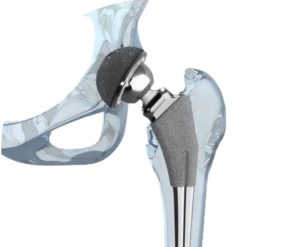There’s been a lot of press attention lately on the dangers of distracted driving. I and many of my Injury Board colleagues have also posted articles on the topic. Yesterday, the NTSB released findings pinning the 2010 collision of an amphibious tourist vehicle with a barge on the distraction of the barge mate. Apparently he was trying to deal with a family emergency and was using his cell phone and laptop to communicate with family members and failed to take action to avoid the collision.
Here’s the press release from the NTSB:
Washington, DC – The National Transportation Safety Board (NTSB) today determined that the mate operating a tugboat near Philadelphia on July 7, 2010, failed to maintain a proper lookout while towing a barge up the Delaware River. The investigation revealed that the mate was inattentive to his duties while navigating the vessel because he was distracted by his repeated use of a cell phone and lap top computer while communicating with his family who were dealing with a family emergency. Further, rather than being in the upper wheel house as expected, the tugboat mate was navigating from its lower wheel house where visibility of the channel ahead was limited.
"This is yet another example of the deadliness of distractions," said NTSB Chairman Deborah A. P. Hersman. "Distraction is a safety concern across all modes of transportation. Regardless of the reason, it’s not okay to multi-task while operating a vehicle – whether it’s calling, texting, or surfing the web."
The accident, which occurred at approximately 2:37 pm, involved an empty 250-foot-long sludge barge, The Resource, that was being towed alongside a 78.9-foot long tugboat, the Caribbean Sea. The barge collided with the DUKW 34, an anchored amphibious passenger vehicle, which sank in approximately 55 feet of water. There were 35 passengers and two crew members onboard the DUKW 34 and five crew members onboard the Caribbean Sea. Two DUKW 34 passengers were killed; 26 passengers and one crewmember suffered minor injuries. No one on board the Caribbean Sea was injured.
The investigation also revealed that maintenance personnel from Ride The Ducks International, LLC, the DUKW 34 owner and operator, did not ensure that the surge tank pressure cap was securely in place before returning the vehicle to passenger service. This allowed the engine to overheat, leading the DUKW 34 master to stop the vessel and anchor in an active channel.
Further, NTSB investigators found that while Ride The Ducks International, LLC, had written procedures for safe operational practices and emergency situations, the master of DUKW 34 did not take all actions appropriate to address the risk of anchoring in an active navigation channel. The NTSB determined these omissions contributed to the accident.
The NTSB issued recommendations to both Ride The Ducks International, LLC, and K-Sea Transportation Partners L.P., to review its management program and develop improved means to ensure that the company’s safety and emergency procedures are understood and heeded by all employees in safety- critical positions. The NTSB also issued recommendations to the U.S. Coast Guard to increase focus on and oversight of inappropriate use of cell phones and other wireless electronic devices by on-duty crewmembers in safety-critical positions so that such use does not affect vessel operational safety. Additionally, the NTSB issued a recommendation to the American Waterways Operators to encourage their members to ensure that their safety and emergency procedures are understood and adhered to by their employees in safety-critical positions.
A synopsis of the NTSB report, including the probable cause, findings, and safety recommendations, is available at: http://go.usa.gov/WAJ.
The full report will be available on the website in several weeks.










Comments for this article are closed.